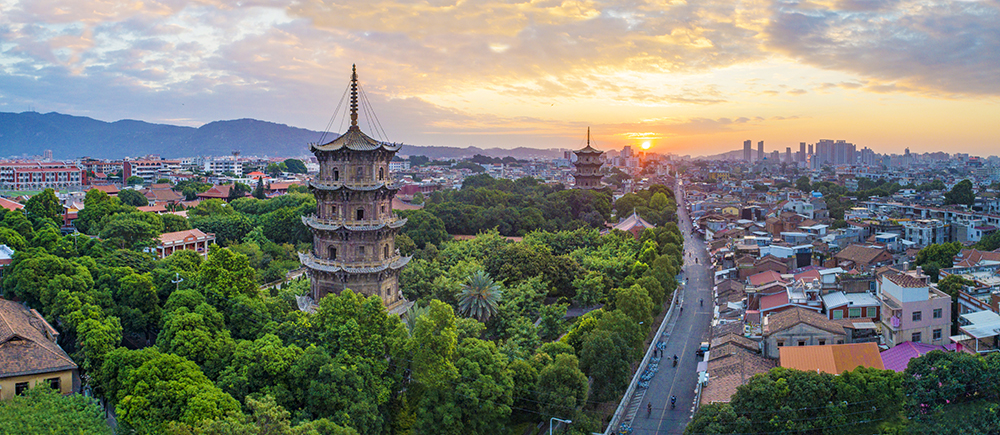

"Quanzhou: Emporium of the World in Song-Yuan China" was inscribed onto the UNESCO World Heritage List on Sunday during the ongoing 44th Session of the World Heritage Committee, which is hosted in Fuzhou, Fujian province.
The new entry includes 22 sites and monuments across Quanzhou, which jointly reflect a prosperous picture of maritime trade from the 10th to 14th centuries.
The Song (960-1279) and Yuan (1271-1368) dynasties witnessed a peak in ancient Chinese maritime trade, and Quanzhou, then known overseas as Zayton, grew into one of the busiest seaports in the world.
The 22 representative historic monuments and sites include administrative buildings and structures; facilities showing the city's structure, such as its gates, walls and roads; religious sites and statues that witnessed multicultural communities; cultural memorial sites and monuments; iron and ceramic production sites; and the city's transportation network formed by bridges, docks and pagodas that guided voyages.
Together, these comprehensively reflect the Song-Yuan Quanzhou's highly integrated maritime trade structure, and the diversity of the social system formed by the supporting institutions, communities and cultural elements, according to the Quanzhou Cultural Heritage Nomination Office.